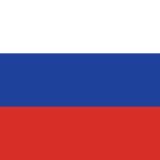In this article:
What is a Russian Studies Degree?
A Russian studies degree is a program that explores the history, culture, language, and politics of Russia and its neighboring regions. It helps students understand the rich heritage of Russian literature, art, and music, as well as the country’s complex history and global influence. The program provides insights into modern Russia’s role in global affairs and its cultural and social dynamics.
In this program, students typically take courses in Russian history, literature, and political science. Many programs also include language courses, allowing students to learn Russian and develop skills to read, write, and speak the language fluently. Some programs explore specific topics like the Soviet Union, Russian philosophy, or the country’s contributions to science and technology.
Program Options
Russian studies programs offer diverse options for students interested in exploring the language, culture, history, and politics of Russia and its neighboring regions.
- Associate Degree in Russian Studies: This two-year program introduces students to the basics of Russian history, culture, and language. It’s an excellent choice for those seeking foundational knowledge or planning to transfer to a bachelor’s program for further study.
- Bachelor’s Degree in Russian Studies: This undergraduate program offers a comprehensive study of Russian language, literature, politics, and history. Students often have opportunities to focus on areas such as Soviet history, Russian literature, or modern political relations. Graduates are prepared for careers in education, international relations, or cultural exchange programs.
- Master’s Degree in Russian Studies: This advanced program allows students to specialize in topics like Russian foreign policy, Slavic linguistics, or cultural studies. It typically involves in-depth coursework and research, often culminating in a thesis or capstone project. Graduates are equipped for leadership roles in academia, diplomacy, or policy analysis.
- Ph.D. in Russian Studies: This research-intensive degree focuses on advanced topics like Russian history, linguistics, or literature. Students contribute original research on specialized topics such as post-Soviet transitions, Russian identity, or global energy politics. It’s ideal for those pursuing careers in academia, advanced research, or consultancy.
- Certificate Programs in Russian Studies: These short-term programs focus on specific areas like Russian language proficiency, Soviet studies, or regional politics. They are suitable for professionals or students looking to enhance their expertise without committing to a full degree.
- Online Russian Studies Programs: These flexible programs cater to students who prefer remote learning. They often include courses on Russian history, language, and culture, with options for certificates or full degrees.
- Dual Degrees in Russian Studies: These programs combine Russian studies with another discipline, such as political science, economics, or international business. They provide interdisciplinary training for students aiming to work in global affairs, security, or economic policy.
Skills You’ll Learn
Russian studies programs cultivate a range of essential skills that are valuable across various professional fields and global contexts.
- Language Proficiency: Students develop the ability to read, write, and speak Russian fluently, enabling them to communicate effectively with native speakers and engage with Russian-language texts and media.
- Cultural Competency: By studying Russian literature, art, and traditions, students gain a deep understanding of Russian culture and its influence on global society, enhancing their ability to work in cross-cultural environments.
- Historical Awareness: Students acquire a comprehensive understanding of Russian history, including key events like the Russian Empire, the Soviet era, and modern post-Soviet developments, which helps contextualize contemporary issues.
- Political Analysis: Through courses on Russian politics and international relations, students learn to analyze political systems, ideologies, and Russia’s role in global affairs, preparing them for roles in diplomacy and policy-making.
- Research and Analytical Skills: Students learn to conduct in-depth research, critically evaluate sources, and synthesize information to form well-informed perspectives on complex topics.
- Critical Thinking: The program emphasizes evaluating historical and contemporary issues from multiple viewpoints, fostering the ability to question assumptions and form balanced arguments.
- Translation and Interpretation: Advanced language courses often focus on translation and interpretation skills, enabling students to bridge linguistic and cultural gaps in professional settings.
- Interdisciplinary Perspective: By integrating history, literature, politics, and linguistics, students gain a broad, interdisciplinary understanding of Russia and its influence on the world.
- Problem-Solving: Students develop the ability to address global challenges involving Russia, such as geopolitical conflicts or cultural misunderstandings, with informed solutions.
- Communication Skills: Through essays, presentations, and discussions, students refine their ability to communicate complex ideas clearly and persuasively in both written and spoken formats.
What Can You Do with a Russian Studies Degree?
A degree in Russian studies opens doors to a variety of dynamic careers where language proficiency, cultural understanding, and geopolitical insights are essential for success in global contexts.
- Diplomat / Foreign Service Officer: Diplomats represent their country’s interests abroad, negotiate agreements, and promote diplomatic relations between nations.
- Translator / Interpreter: Translators convert written text, while interpreters facilitate spoken communication between individuals who speak different languages.
- Journalist / Correspondent: Journalists report on international news, political developments, and cultural issues, often stationed in foreign countries to provide firsthand accounts.
- Policy Analyst: Analysts provide expertise on Russian affairs to government agencies, influencing policy decisions and diplomatic strategies.
- Researcher / Professor: Academic researchers conduct scholarly research on Russian language, culture, history, or politics, while professors teach and mentor students in higher education settings.
- Market Research Analyst: Research analysts study economic, political, and social issues related to Russia and its relations with other countries, providing data-driven insights for decision-making.
- International Relations Specialist: These professionals analyze political and economic trends, manage international projects, and advise organizations on global affairs and policies.
- Cultural Advisor: Cultural advisors provide insights into cultural practices, etiquette, and norms to facilitate cross-cultural understanding and collaboration in business or international relations.

